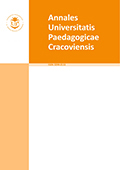Defining Tyranny – Oliver Cromwell and Political Theoretics
Defining Tyranny – Oliver Cromwell and Political Theoretics
Author(s): Paweł KapturSubject(s): Political history, Social history
Published by: Wydawnictwo Uniwersytetu Komisji Edukacji Narodowej w Krakowie
Keywords: Cromwell; English revolution; tyranny; politics; Locke; Hobbes; Milton
Summary/Abstract: The figure of Oliver Cromwell has long been associated with tyranny or despotism. Although it is hard not to notice Cromwell’s atrocities and ruthlessness in his military actions, the attribution of tyranny to his entire rule might seem at least unjustifiable. Political theorists contemporary with Cromwell, such as John Locke, Thomas Hobbes, or John Milton commented on, disputed and argued about the origins of authority and tyranny during and after the Interregnum. In his Leviathan Hobbes implies that tyranny actually equals sovereignty and has to be taken for granted. The major point in John Locke’s Two Treatises of Government and the chapter “Of Tyranny” is that a tyrant makes his will a rule and exercises his power beyond right for his own private benefit neglecting the advantage of his subjects. In The Tenure of Kings and Magistrates Milton shares Locke’s views and reiterates that a tyrant reigns only for himself. The present article takes a look at Cromwell’s Protectorate and attempts at highlighting those episodes of his political career in which he was most commonly accused of being a tyrant. The principal aim of the article is to scrutinise Cromwell’s actions and view them against the background of the 17th century political theories which strived to define tyranny and its roots.
Journal: Studia Anglica
- Issue Year: 222/2016
- Issue No: 6
- Page Range: 80-89
- Page Count: 10
- Language: English

